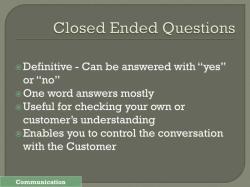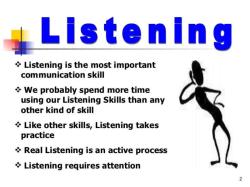How to use quotes in your speech?
Incorporating quotes into your speech can be a powerful way to add credibility, emphasis, and depth to your message. However, it's important to use quotes effectively and purposefully to enhance your speech rather than detract from it. Here are some tips on how to use quotes in your speech effectively:
Select Relevant Quotes:
- Choose quotes that directly relate to your speech's topic, theme, or message. Ensure that the quotes support and reinforce the points you're making in your speech.
Attribute the Quote:
- Always credit the source of the quote and the person who said or wrote it. This not only gives proper credit but also adds credibility to your speech. For example, you can say, "As Abraham Lincoln once said..."
Provide Context:
- Before sharing the quote, provide a brief context or explanation of who the speaker or author is and the circumstances in which the quote was made. This helps the audience better understand its significance.
Introduce the Quote:
- Lead into the quote with a sentence or two that sets it up. Explain why you're using this particular quote and how it relates to your topic. This introduction helps transition smoothly into the quote.
Use Appropriate Punctuation:
- When incorporating a quote into your speech, use quotation marks to indicate the beginning and end of the quote. For example: "In the words of Mahatma Gandhi..."
- If the quote is a complete sentence, use a colon to introduce it. For instance, "Martin Luther King Jr. once said: 'I have a dream that one day...'"
- If the quote is integrated into your sentence, use quotation marks around it but without a colon. For example, "According to Albert Einstein, 'Imagination is more important than knowledge.'"
Emphasize Key Points:
- Use quotes strategically to emphasize key points in your speech. The quote should reinforce and enhance the message you're trying to convey.
Cite Sources Properly:
- Ensure that you cite the source of the quote accurately. If you're delivering a formal speech, follow a specific citation style (e.g., APA, MLA) as required.
Maintain Flow:
- Make sure the quote flows naturally within your speech. Avoid inserting quotes abruptly; instead, integrate them seamlessly into your narrative.
Keep It Concise:
- Use quotes that are concise and to the point. Long, complex quotes can be challenging for the audience to follow.
Practice Delivery:
- Practice the delivery of your speech with the quotes included. Ensure that you can say the quote smoothly and with the appropriate tone and emphasis.
Engage the Audience:
- After sharing a quote, briefly discuss its relevance or how it ties into your speech. Encourage the audience to reflect on the quote's message and its connection to your topic.
Use Variety:
- Don't rely solely on quotes. Mix them with your own words and ideas to maintain a balance in your speech.
Remember that quotes should enhance your speech and not overwhelm it. Use them sparingly and purposefully to make your message more compelling and memorable.
Crafting an Impactful Speech: Tips for Using Quotes Effectively
Quotes can be a powerful tool for adding impact to your speech. They can help to illustrate your points, support your arguments, and inspire your audience. However, it is important to use quotes effectively in order to achieve the desired effect.
Here are some tips for using quotes effectively in your speech:
- Choose quotes that are relevant to your topic and audience. The quotes you choose should be meaningful to your audience and help to support the points you are making.
- Use quotes sparingly. Too many quotes can make your speech sound like a collage of other people's words. Instead, use quotes strategically to emphasize your key points.
- Introduce your quotes properly. Before you share a quote, let your audience know who said it and why you are sharing it. This will help to give the quote more context and impact.
- Explain the quote. If the quote is complex or open-ended, take a moment to explain what it means and why it is important. This will help your audience to understand and appreciate the quote.
- Use quotes to inspire your audience. Quotes can be a great way to motivate and inspire your audience. Choose quotes that are uplifting and empowering, and that speak to the values and aspirations of your audience.
Here are some examples of how to use quotes effectively in your speech:
- To illustrate a point:
"The best way to predict the future is to create it." - Peter Drucker
This quote can be used to illustrate the importance of taking action and creating your own destiny.
- To support an argument:
"The only way to do great work is to love what you do." - Steve Jobs
This quote can be used to support the argument that passion is essential for success.
- To inspire your audience:
"Never let the fear of striking out keep you from playing the game." - Babe Ruth
This quote can be used to inspire your audience to take risks and pursue their dreams.
The Power of Quotations: How to Incorporate Quotes into Your Speech
Quotes can be incorporated into your speech in a variety of ways. You can use them to introduce your speech, to conclude your speech, or to support your main points. You can also use quotes to transition between different sections of your speech.
Here are some ideas for how to incorporate quotes into your speech:
- Use a quote to introduce your speech. A well-chosen quote can introduce your topic and grab the attention of your audience.
- Use a quote to conclude your speech. A powerful quote can help to leave a lasting impression on your audience and reinforce your main message.
- Use quotes to support your main points. Quotes can be used to add authority and credibility to your arguments.
- Use quotes to transition between different sections of your speech. Quotes can be used to signal to your audience when you are moving on to a new topic or idea.
Inspiring with Words: Using Quotes to Elevate Your Speech
Quotes can be used to elevate your speech and inspire your audience. When you share a quote that is meaningful and relevant to your audience, you are helping them to connect with your message on a deeper level.
Here are some tips for using quotes to inspire your audience:
- Choose quotes that are uplifting and empowering. Quotes that celebrate the human spirit and promote positive change can be especially inspiring.
- Share quotes from people that your audience admires. When you share quotes from people that your audience respects and admires, it can make your message more impactful.
- Tell stories about how quotes have inspired you personally. Sharing your own stories about how quotes have inspired you can help your audience to connect with your message on a personal level.
By following these tips, you can use quotes effectively to craft an impactful speech that will inspire your audience.











